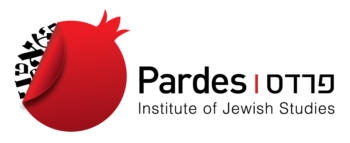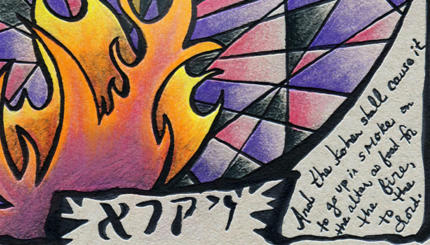Commentary on Parashat Shemot, Exodus 1:1-6:1
Questions
1. How many were the souls that descended from Jacob?
2. What were the names of the two store-cities that the Israelites built for the new Pharaoh?
3. How do you spell Pharaoh?

Help us keep Jewish knowledge accessible to millions of people around the world.
Your donation to My Jewish Learning fuels endless journeys of Jewish discovery. With your help, My Jewish Learning can continue to provide nonstop opportunities for learning, connection and growth.
4. What were the names of the two midwives that Pharaoh dealt with?
5. Why did Pharaoh want to do away with the male Hebrew children as opposed to the female children? Why not both?
6. Why did the midwives disobey Pharaoh?
7. When Moses was born, his mother saw that he was a “goodly child” and she hid him for three months. According to Rashi, what does a “goodly child” mean?
8. We are told that Moses fled Egypt and dwelt in the land of Midian. The next thing we are told was that he sat down where and what happened?
9. Of what other two instances in previous parshiyot does this story remind you?
10. What was the name of Moses and Tzipporah’s first child? And what does the name mean or signify?
11. What is the symbolism of the burning bush?
12. What were two signs that God gave Moses to prove that He was God?
Answers
1. 70 souls descended from Jacob (1:5).
2. The names of the two store-cities that the Israelites built for the new Pharaoh were Pithom and Raamses (1:11).
3. It is spelled P-h-a-r-a-o-h.
4. The names of the two midwives were Shiphrah and Puah (1:15).
5. Pharaoh wanted to kill the men because women would not be a threat in time of war and would serve as good slaves. He also thought women would be better absorbed into the Egyptian population.
6. The midwives disobeyed Pharaoh because they feared God (1:21).
7. According to Rashi it meant that when he was born the entire house was filled with light (2:2).
8. Moses sat by a well. Seven daughters of the priest of Midian came to water their flock and Moses helped them (2:15-17).
9. This reminds us of Eliezer when he came to find a wife for Isaac by the well, and Jacob when he stopped at the well to help Rachel.
10. The name of Tzipporah and Moses’ first child was Gershom. The name means “For I was a stranger in a strange land” (2:22).
11. The burning bush is symbolic of the Egyptian exile. God was in the lowly thorn bush because he joined in the suffering of His people. The bush itself represents Israel and could not be consumed because God does not allow His nation to be destroyed.
12. The two signs that God gave Moses were that his rod turned into a serpent and then back again, and when he put his hand inside his blouse it became leprous, and when he returned it, it became healthy again.
Provided by the Pardes Institute of Jewish Studies.

Torah
Pronunced: TORE-uh, Origin: Hebrew, the Five Books of Moses.

Help us keep Jewish knowledge accessible to millions of people around the world.
Your donation to My Jewish Learning fuels endless journeys of Jewish discovery. With your help, My Jewish Learning can continue to provide nonstop opportunities for learning, connection and growth.



